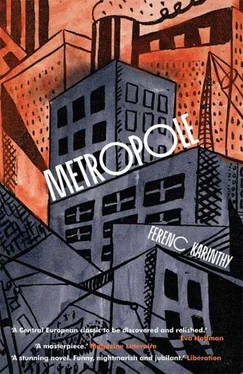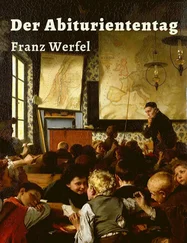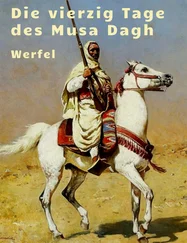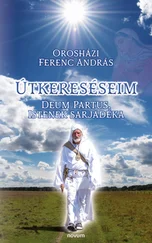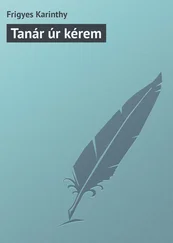Zöhömö, pröhödö
Türidümi mödölnö
This drove the crowd to a point of mad excitement and even those who were standing quietly started sobbing and screaming and all but collapsed, remaining upright only because there was not enough room to fall. A gaunt old man, ripped his clothes off and threw them away, everything including his waistcoat, his shirt, his trousers and his boots, leaving himself clad only in a single chequered pair of knee-length underpants. His chest was covered in dense grey hair. His eyes were swivelling crazily this way and that.
Others were stripping off too despite the cold, even women and young girls, all apparently possessed as if offering up their nakedness… Strangely enough Budai felt neither outraged nor even surprised by the sight: he too was feeling the trance-like urge to throw himself on the marble floor, to kick off his shoes, undo his collar and loosen his tie. A heady joy seized him at being here, at being able to take part, to melt into the great communion of the faithful.
A censer had been lit ahead of him. The priest raised it and swung it high in the air. And now, as if they had been waiting for just this signal, everyone started to press towards him though even at the peak of their religious ecstasy they approached him in pairs. Some people did try to sneak into the queue from the side aisles in order to reach their goal all the sooner but the rest wouldn’t let them and pushed them back: there was real hand-to-hand combat between them for the privilege of being there first. One bowler-hatted, fat gentleman with a walking stick was cruelly trampled down in the process despite waving his arms and giving out thin little piglet-like squeals.
The point of all this pushing and shoving was to force a way through to the priest, cower at his feet and kiss the shoes that peeked out from under his robe. They were little black-lacquered shoes that must have been perfectly polished but their toecaps were quickly smeared by all the mouths that touched them. Having arrived at the front, Budai bowed down and made some pretence of putting his lips to the lacquer, shrinking back in disgust. Under his breath he gabbled a short sentence to the priest, first in Latin then in Greek, trying to use the brief moment allotted to him; then, for good measure, in Hebrew and Old Slavonic too, in fact in any language that might be employed in church ritual, anything that might be recognised by a man conversant with theology. The priest was utterly immobile, rooted to the spot, no sign on his heavy, bronze, finely-carved face that he had understood any of it. He swung the censer he was still holding above his head but Budai was being pushed from behind by a little walrus-moustached, bald, Chinese-looking man, all chest and shoulders, and had to give way so that the man might cover the priest’s black-lacquered shoes with kisses.
The service seemed to be over, the congregation drifting away, so he allowed himself to be carried along. He was tired and had no energy left to ask anyone anything. He was content to go where everyone else seemed to be going. The great mass of people started to ascend a spiral staircase that led gently upwards. He chose to follow them, climbing higher and higher, round and round with them. He was gasping for air by now and his legs felt numb but everyone was moving so fast he could not help but pick up their pace, driven on in any case by curiosity to see where they would end up.
Having climbed for some time so he could no longer recall how many spirals he had described, the steps changed direction. They had emerged into a circular passageway covered by a great bell-like dome. They were actually within the cupola. The corridor rails were set sufficiently wide apart to allow him to look into the dizzy depths some eighty or hundred metres down where the jostling crowds appeared to be no more than a dark grey mass of indifferent, undifferentiated heaving matter. But it was still more dizzying to look upwards, into the narrowing eye of the dome, the curved ribs rising to the apparently infinite height of a focal point far enough away to make the heart beat faster: it was at least as high again as the point he was looking at it from.
He had to go round the whole dome following the direction indicated by innumerable arrows. The tour then took him through another door, to another set of stairs that were much narrower and steeper than the ones before, people following each other in zig-zags through the shell structure. Then the stairs came to an end and one could only progress by ladders. Then the ladders too vanished leaving only narrow planks and precarious breakneck rope-ladders, ever more exhausting, requiring ever more stamina to climb until one might as well have been a circus acrobat to master them. But there was no turning back because there were people behind him, following him in an endless single file as far as he could see.
He must be close to the top now, he calculated, and indeed he found himself clambering up a last set of vertical steps into a round space surrounded by windows. This would have been the small cylindrical room intended to illuminate the area below: its technical name, he remembered now, was the lantern. Above it, at the highest point of the temple, was the eye of the dome, a little cap or hood of glass. A solitary rope ladder led up to it. The eye could accommodate only one person’s head and shoulders as he stood at the top rung. The discomfort was worth it, however, for the view. It offered a complete panorama.
The sun was going down. Budai could almost feel the sky turning an inky-blue-black though it was impossible to tell whether that was because of the smoke-and-soot-polluted air or because of a large rain cloud louring over the rooftops. The city spread over a plain into distances further than the eye could see. Whichever way he turned there was no end to it, nothing but houses and apartment blocks, streets, squares, towers, old and new quarters of town, mildewy storm-battered rented barracks and skyscrapers faced with modern marble, main roads and alleys, factories, workshops, gasometers and the clumsy-looking great hall that he recognised even from here as the slaughterhouse. And chimneys, chimneys everywhere he looked; chimneys like so many long-necked dragons stretching towards the sky, spouting white, black, yellow and purple smoke. The wind carried the smoke, churned it, thrust it into dirty bundles and shreds, chasing it here and there even around his look-out point. The wind battering at the dome was cold and fierce, making its ribs creak and groan beneath him, the lantern visibly swaying. Wind swept through the little cage where Budai was stationed. He shivered and trembled but remained, unable to drag himself away from the view.
He looked in vain though for any sign of railway tracks or terminals. It was dark of course and getting darker so it was hard to make out detail. Nor could he see a river or a bridge, let alone a shore, however he peered. There were, perhaps, only a few reservoirs of the kind he had passed twinkling for a few seconds in a late stray sunbeam before sinking back into the obscure depths. He thought of looking for the vacant plots he had crossed earlier, believing them to be the edges of town. He caught sight of one in the very last moment before it finally vanished, a narrow strip or band of derelict greeny-brown among heavily built-up areas. But what it divided from what, whether it was in fact a division of some sort or had any geographical significance at all remained a puzzle he could not begin to solve… He was no wiser for the panoramic view. Could he have found his way into another town or was it the same place?
Whatever the answer, he decided he would go no further that day. Not primarily because of his exhaustion: as far as that was concerned he could continue; he had, after all, plenty of stamina and determination, having kept fit at home by engaging in various sports and developing the discipline to stick to a chosen target without sparing himself or indulging in feelings of self-pity. But he knew that he could find his way back to the hotel from the temple and was less likely to do so from further off, especially in darkness. He would find it impossible to keep all the various landmarks in mind. And if he had really wandered into another town, what hope or assurance had he that he would find his way round this one more easily? The language, the alphabet and other such details would be just as incomprehensible and it was exactly the same indifferently jostling crowd here as there. Ideally he would start again at the very beginning, take proper bearings, gather the right information, get used to the traffic system and give up the lifestyle he had so carefully and painstakingly constructed for himself at home. He hadn’t anything to his name here, no back up. Where could he spend the night but at the hotel and, if he were forced to ask for accommodation elsewhere, how would he frame his request?
Читать дальше
